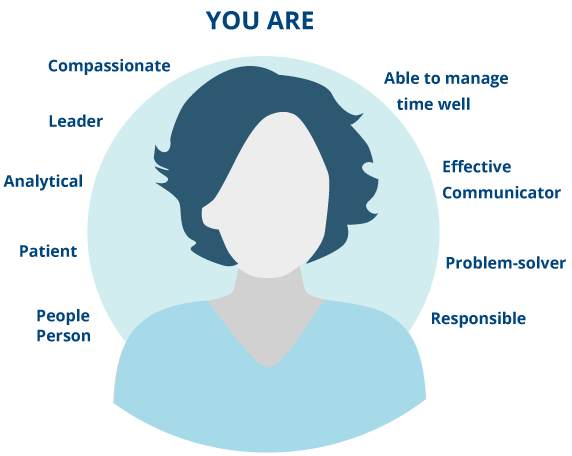Human Services
Career Guide
People who work in human services help people overcome obstacles and get access to services such as counseling, therapy and rehabilitation. They work to improve the lives of people in need who need these services the most.
What is Human Services?

“Human services tend to be as broad as the needs and problems of the client base,” says Robert Olding of the National Organization for Human Services.
Combining elements of psychology, social work, and criminal justice studies, social and human services is, at heart, about focusing on prevention as well as remedying problems, while maintaining a commitment to improving the quality of life of people in need. Under this umbrella you’ll find jobs such as social worker, school psychologist, mental health counselor, childcare worker, and even sociologist and clergyman.
They work in halfway houses; correctional facilities; community mental health centers; family, child, and youth service agencies; and programs dealing with alcoholism, drug abuse, family violence and aging.
A degree in human services is just the beginning, and this is a potential gateway to other social-service careers. Many who begin as human services assistants go on to become social workers, counselors, and many other professions. Whatever their job title, they are tireless advocates, and society would be worse off without these missionary-spirit human services workers.
Skills You Need

Learn which personality traits and professional skills you’ll need to work in human services.
You should have…
- Excellent goal-setting skills
- High ethical standards
- Integrity
- Clear boundaries
- Excellent communication skills
How to Become a Human Services Worker
It’s impossible to say exactly how to become a human services worker because that phrase can mean so many different things.
That said, since there are over 600,000 social workers in the U.S., below are the steps for becoming a social worker. If you’re interested in another field, check with your state’s department of licensing to see what’s needed to pursue the career of your choice.
1
Get a Bachelor’s
For entry-level positions, you’ll need a bachelor’s degree with a focus on social work. However, this is just the first step because most human services workers ultimately need a master’s degree.
2
Earn a Master’s or Doctorate
If you want to become a Licensed Clinical Social Worker (LCSW), a master’s (MSW) or doctoral degree in social work is required. Make sure your school is accredited by the Council on Social Work Education.
3
Get Work Experience
Before becoming a full-fledged social worker, you’ll need work experience under the supervision of a mentor. The number of hours of supervised work depends on your state’s requirements, but 1,500 hours is a common number.
4
Pass the Social Work Exam
You will need to pass the Clinical Level Association of Social Work Boards (ASWB) exam.
5
Apply for Licensure
In order to practice social work, you must be licensed by the board of social work in your state.
Where You’ll Find Human Services Workers
“Human services worker” is a broad term for the people who work in many different environments, which may include group homes, halfway houses, correctional facilities, community mental health centers, and family and youth services agencies. People in this field deal with societal issues such as alcoholism and drug abuse, family violence, and aging, so you’ll need to have a thick skin while still displaying understanding and empathy in situations that are difficult to fathom for the average person.
Basically, human services workers have a three-tiered objective to fulfill:
- Evaluate a client—or community’s—needs
- Create a treatment plan
- Put the plan into effect
Let’s look at the three common careers in social and human services:
Social and Human Services Assistant
As an assistant in social and human services, you may only need a high school diploma. However more and more employers seek employees who have an associate’s degree or bachelor’s degree or experience in the field. In this career you’ll help people and communities get through difficult times, and you’ll aid social workers as they help their clients find the community services they need.
Social and Human Services Manager
This is an administrative role that requires at least a bachelor’s degree, but preferably a master’s degree in public administration or human services administration. You’ll supervise and coordinate social service programs and lead community groups and organizations as a manager. You’ll also direct your staff, such as the social workers who provide services to the community.
Social Worker
Most social workers in human services fall under the “direct service” umbrella. These are the in-the-field social workers who help people and communities cope with and solve problems in their lives. Counselors and caseworkers might also fit into this category, and it might include specializations such as rehabilitation, school, and substance abuse counselors. A bachelor’s degree is the minimum requirement for social workers, but clinical social workers will need a master’s degree and to be licensed. Today, many employers actually prefer that their social workers have a master’s degree. Counselors are required to obtain a masters-level degree in order to practice.
Salary and Job Growth
Human services professionals may not get rich on their salaries, but they are well paid. Salaries can vary a lot depending on location, years of experience and a variety of other factors, says the U.S. Bureau of Labor Statistics Occupational Outlook Handbook.
Compare current median salaries from the BLS’ 2023 data below:

$41,410
Human Services Assistants

$48,200
Community Health Workers

$53,710
Substance Abuse Counselors

$77,030
Social and Community Service Managers
The job outlook for social and community services managers is great. Employment is expected to grow 9.1% through 2032 for these occupations, which is much faster than average. National long-term projections of employment growth may not reflect local and/or short-term economic or job conditions and do not guarantee actual job growth.
Job Growth
9.1%
Related Occupations
Here are some other fields you might like if entry-level human services isn’t exactly what you’re looking for:





